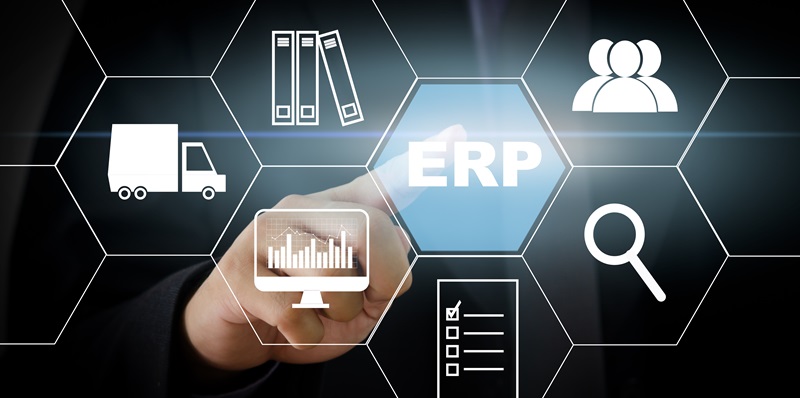In today’s fast-paced business environment, the effective management of resources and data is crucial for maintaining a competitive edge. Enterprise Resource Planning (ERP) systems have long served as the backbone of business operations, enabling organizations to integrate and streamline various processes. However, with the advent of new technologies and changing market dynamics, ERP systems are undergoing a significant transformation. This article examines the current trends in ERP systems and explores their future direction.
Rapid Adoption of Cloud-based ERP Solutions
The convenience and accessibility offered by cloud-based ERP solutions has propelled them to the forefront, steadily replacing on-premises alternatives. Organizations are increasingly drawn to the benefits of cloud ERP, including reduced infrastructure costs, scalability, and enhanced collaboration. As a result, most vendors are now planning to discontinue support for old, on-premises systems, further solidifying the dominance of cloud-based ERP solutions.
Integration of AI and Machine Learning in ERP Systems
To harness the power of data, ERP systems are incorporating artificial intelligence (AI) and machine learning capabilities. These advanced technologies enable ERP systems to provide accurate forecasting, predictive analytics, task automation, and intelligent decision-making. By leveraging AI, organizations can uncover valuable insights from vast amounts of data, empowering them to make informed strategic choices and improve overall operational efficiency.
User experience and accessibility play a pivotal role in the successful implementation and adoption of ERP systems. Organizations are increasingly realizing that a positive user experience is essential for encouraging usage and maximizing the benefits of their ERP investments. User-friendly interfaces, intuitive workflows, and customizable dashboards ensure that employees can quickly navigate and leverage the ERP system, ultimately driving better productivity and higher user satisfaction.
Mobile ERP Apps for Greater Control
In an era where mobility is becoming increasingly essential, mobile ERP apps offer a unique advantage. These applications allow employees to access and control critical business processes on the go, providing real-time visibility of operations. With mobile ERP apps, personnel can review and approve purchase orders, manage inventory, track sales figures, and collaborate with colleagues seamlessly. The convenience and flexibility offered by these apps make them indispensable in today’s fast-paced business landscape.
Emerging Technologies in ERP Systems
As emerging technologies gain momentum, ERP systems are adapting to leverage their potential benefits. Internet of Things (IoT) devices, blockchain, and augmented reality are finding their way into ERP functionalities. IoT devices enable real-time data collection within the ERP system, facilitating proactive decision-making and predictive maintenance. Blockchain ensures secure transactions and transparent supply chains. Augmented reality enhances user experience and simplifies complex processes, such as warehouse management or equipment maintenance.
Modular and Customizable ERP Solutions
Traditionally, ERP systems were monolithic and offered limited customization. However, the trend is shifting towards modular and customizable ERP solutions. Businesses now have the flexibility to select specific functionalities and modules based on their unique requirements. This modular approach allows for easier implementation, better integration with other systems, and reduces the burden of unnecessary features. Organizations can tailor their ERP systems to fit their specific processes and workflows for improved efficiency and agility.
Sustainability and Environmental Impact in ERP Systems
Growing concerns about sustainability and environmental impact are pushing businesses to consider the ecological footprint of their operations. As a result, ERP systems are evolving to incorporate features that enable companies to track and manage their environmental impact. The integration of environmental metrics and reporting tools within the ERP system enables organizations to monitor and analyze their sustainability efforts and make informed decisions to reduce their ecological footprint.
Remote Work and Collaboration in ERP Systems
The COVID-19 pandemic has accelerated the trend towards remote work, highlighting the importance of remote collaboration and communication. ERP systems are evolving to support and streamline remote work and collaboration initiatives. Cloud-based accessibility allows employees to securely access ERP systems from anywhere. Integrating video conferencing within ERP enhances remote communication, fostering collaboration among diverse and distributed teams. Additionally, tools for task management, document sharing, and real-time updates facilitate efficient workflows, ensuring smooth remote operations.
Influence of Technological Advancements and Market Dynamics
Technological advancements and market dynamics have a profound impact on the direction of ERP trends. As technologies like AI, machine learning, IoT, blockchain, and augmented reality continue to evolve rapidly, ERP systems must adapt to effectively leverage their potential benefits. Market dynamics, such as changing customer preferences, regulatory requirements, and industry-specific needs, also influence the development and integration of new features within ERP systems. Staying updated with these trends allows businesses to remain competitive and future-ready.
The ever-changing business landscape calls for continuous adaptation and innovation, and ERP systems are no exception. Cloud-based ERP solutions have become the industry norm, with vendors discontinuing support for on-premises alternatives. The integration of AI and machine learning capabilities empowers organizations with data-driven insights and automation. User experience and accessibility are becoming pivotal factors in ERP adoption, while mobile ERP apps provide unparalleled control on the move. As emerging technologies gain traction, ERP systems are evolving to leverage IoT, blockchain, and augmented reality. Customization and modularity allow businesses to tailor ERP solutions to their specific needs. Concerns about sustainability prompt ERP systems to track and manage ecological footprints, and remote collaboration features streamline work in a distributed world. Embracing technological advancements and market dynamics is key to staying ahead in the ever-evolving ERP landscape.

